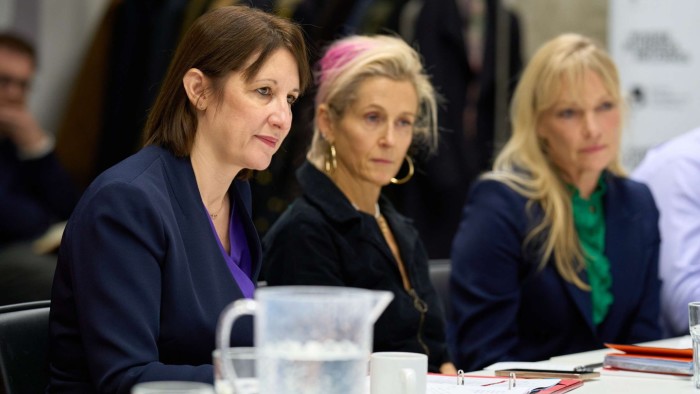Unlock the Editor’s Digest for free
Roula Khalaf, Editor of the FT, selects her favourite stories in this weekly newsletter.
Business leaders have warned Rachel Reeves at a private meeting that the economic environment is “extremely challenging” with companies facing major uncertainty after last month’s tax-raising Budget and the “Making Work Pay” package of employment reforms.
The UK chancellor on Wednesday morning attended a meeting of the British Chambers of Commerce “business council”, a group of senior corporate figures who gather every quarter to discuss the economic landscape.
Some 19 executives came to the gathering in south London from companies including SSE, NatWest, Heathrow, Drax, DP World, BP and Aviva.
In a straw poll of attendees around the table before the chancellor’s arrival, only three said they expected the economic situation to improve in a year’s time.
Reeves used her opening remarks to acknowledge the challenges she had to address with last month’s Budget and insist it would not be repeated in the future, according to people with knowledge of the meeting.
But executives told the chancellor that the national insurance rise would have a significant impact on both investment and recruitment, as well as the new employment reforms and looming changes that will mean the business world paying an extra £2.7bn on business rates in two years’ time.
Reeves gave a robust defence of her £25bn increase in employers’ national insurance contributions (NICs), saying that the government needed to restore fiscal stability.
Martha Lane Fox, president of the BCC, said after the meeting there was “no hiding the reality” that the Budget had been tough for business.
“Millions of firms are now facing a raft of increased costs in the coming months,” she said. “Higher bills will impact on investment and recruitment. Our latest forecast also suggests the ripples will be felt across the wider economy.”
Lane Fox said that the rising costs meant it was more vital than ever that the government delivered on its promise to create long-term frameworks for economic stability.
Last month Rupert Soames, chair of the CBI, accused the government of treating employers as a “cash cow” in a Budget that most viewed as “a bit shit”.
Some ministers have become concerned about the impact of the NICs rise not only on companies but also on various public services.
Hundreds of charities have signed a letter organised by the National Council for Voluntary Organisations warning that the tax rise will force them to cut staff or limit services.
There are also concerns in government about the impact on nurseries, which have warned that parents could face higher fees or even some nursery closures against the backdrop of higher NICs and a more generous minimum wage.
Labour has repeatedly said that it found a £22bn “black hole” in the public finances after winning the general election in July, necessitating tough decisions in the Budget.
After the meeting Reeves said the government would bring investment and reforms to kick-start economic growth: “My Budget was one to wipe the slate clean in the face of an inherited £22bn black hole and bring businesses the stability they desperately need. It involved difficult decisions, but has laid the foundations for growth.”



